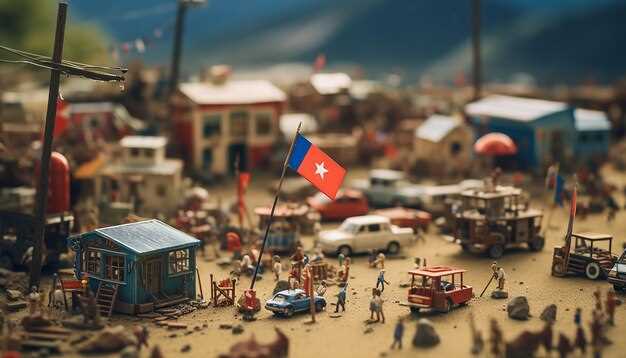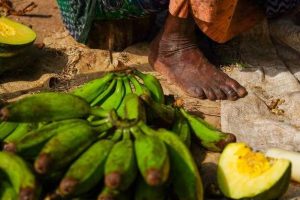
Embark on a captivating exploration of the enigmatic nation of Haiti, a land steeped in a rich tapestry of history and resilience. Delve into the intricate layers of this Caribbean jewel, as we unravel the story of its birth, growth, and the myriad of challenges it faces today. From its emergence as the first black-led republic in the world to its ongoing struggles with poverty and political instability, Haiti’s journey is one that captivates the imagination and demands our understanding.
Step back in time to the dawn of Haiti’s existence, when it emerged from the shackles of colonialism and slavery to claim its place in the annals of history. Witness the indomitable spirit of the Haitian people as they fought for their freedom, defying all odds and carving out a nation of their own. This tale of triumph over adversity serves as a testament to the strength and resilience that has come to define the Haitian identity.
However, as we delve deeper into Haiti’s past, we must confront the harsh realities that have plagued the nation for centuries. The echoes of colonization and exploitation still reverberate through its streets, leaving a lasting impact on its social, economic, and political landscape. Uncover the complex web of factors that have contributed to Haiti’s present-day challenges, from systemic corruption to natural disasters that have left the country reeling.
Yet, amidst the shadows of adversity, glimmers of hope and resilience persist. Discover the vibrant culture and artistic heritage that have flourished despite the odds, as Haiti’s people continue to celebrate their unique identity. Explore the efforts of local organizations and international aid in addressing the pressing issues that confront the nation, as Haiti strives to forge a path towards a brighter future.
The Birth of a Nation: Haiti’s Fight for Independence
In this section, we will delve into the remarkable story of Haiti’s struggle for independence, a pivotal moment in history that shaped the nation’s identity and set the stage for its modern-day challenges. We will explore the arduous journey of the Haitian people as they fought against colonial powers and successfully established themselves as the first black republic in the world.
The Struggle Against Colonial Oppression
At the dawn of the 19th century, Haiti was a French colony known as Saint-Domingue, a prosperous sugar-producing region fueled by the labor of enslaved Africans. However, the enslaved population, inspired by the ideals of the French Revolution and fueled by their own desire for freedom, rose up against their oppressors in a courageous and relentless fight for independence.
The Haitian Revolution, which spanned from 1791 to 1804, was a complex and violent conflict that involved not only the enslaved population but also free people of color and even some white allies who opposed the oppressive colonial regime. Led by influential figures such as Toussaint Louverture and Jean-Jacques Dessalines, the Haitian people fought against the French army and successfully expelled them from the island.
The Birth of the First Black Republic
On January 1, 1804, Haiti declared its independence, becoming the first black republic in the world and the second independent nation in the Americas, following the United States. This momentous achievement marked a significant turning point in the history of slavery and colonialism, inspiring hope and resistance among oppressed peoples worldwide.
The establishment of Haiti as an independent nation, however, did not come without its challenges. The newly formed republic faced economic and political obstacles, including the need to rebuild a devastated country and establish a stable government. Moreover, Haiti’s fight for independence did not go unnoticed by other colonial powers, who imposed economic embargoes and political isolation on the young nation, further hindering its development.
Despite these challenges, Haiti’s fight for independence remains a testament to the indomitable spirit and resilience of its people. The birth of the nation not only symbolized the triumph of freedom over oppression but also laid the foundation for the ongoing struggles and aspirations of the Haitian people in their quest for a better future.
The Impact of Colonialism on Haiti’s Development
Colonialism played a significant role in shaping the development of Haiti, leaving a lasting impact on its history, economy, and social structure. The effects of colonization can still be felt in modern-day Haiti, as the country continues to grapple with the consequences of its colonial past.
1. Economic Exploitation and Dependency
During the colonial period, Haiti was subjected to intense economic exploitation by European powers, primarily France. The extraction of valuable resources, such as sugar, coffee, and indigo, fueled the wealth of the colonizers while leaving the local population impoverished. This economic exploitation created a cycle of dependency, as Haiti became reliant on foreign powers for trade and economic stability.
2. Social and Cultural Disruption
Colonialism also had a profound impact on Haiti’s social and cultural fabric. The forced labor system, which relied heavily on enslaved Africans, led to the displacement and disruption of indigenous communities. The imposition of European cultural norms and values further eroded traditional Haitian customs and practices, creating a sense of cultural disconnection and identity crisis among the Haitian people.
Furthermore, the hierarchical social structure imposed by the colonizers perpetuated social inequalities, with the elite class benefiting from their collaboration with the colonial powers, while the majority of the population struggled to survive.
The legacy of colonialism in Haiti is complex and multifaceted, with deep-rooted socio-economic challenges that continue to hinder the country’s development. Understanding the impact of colonialism is crucial in addressing these challenges and working towards a more equitable and prosperous future for Haiti.
The Legacy of Slavery: Haiti’s Struggle for Economic Stability
Exploring the historical impact of slavery on Haiti’s economic stability reveals a complex and enduring struggle. From the dark days of colonial exploitation to the present challenges faced by the nation, the legacy of slavery continues to shape Haiti’s economic landscape.
A History of Exploitation
Haiti’s history is marred by the brutal legacy of slavery, which was imposed upon the island by European colonizers. The forced labor of enslaved Africans fueled the economic prosperity of the French colony, but at a tremendous human cost. The system of slavery created deep-rooted inequalities and a stark divide between the ruling elite and the oppressed majority.
Following the successful slave rebellion in 1804, Haiti became the first independent black republic in the world. However, the newly formed nation faced immense challenges in rebuilding its economy after years of exploitation. The loss of labor and infrastructure, combined with international isolation and crippling debt, set the stage for Haiti’s ongoing struggle for economic stability.
Continuing Economic Challenges
Despite its rich natural resources and potential for economic growth, Haiti has faced persistent challenges in achieving stability. Political instability, corruption, and a lack of investment have hindered the nation’s progress. The legacy of slavery, with its deep-rooted inequalities and social divisions, has further exacerbated these challenges.
Haiti’s economy heavily relies on agriculture, particularly the production of coffee, cocoa, and sugar. However, the sector has been plagued by issues such as deforestation, soil erosion, and limited access to markets. Additionally, the country has struggled to attract foreign investment and develop industries beyond agriculture.
The devastating earthquake in 2010 further exacerbated Haiti’s economic woes, causing widespread destruction and loss of life. The slow pace of recovery and the inadequate response from the international community highlighted the nation’s vulnerability and the urgent need for sustainable economic development.
Efforts are being made to address these challenges and promote economic stability in Haiti. Initiatives focusing on education, infrastructure development, and job creation aim to empower the population and reduce poverty. However, the legacy of slavery continues to cast a long shadow, reminding us of the deep-rooted struggles that Haiti faces in its quest for economic stability.
The Duvalier Era: Dictatorship and Political Instability
The period known as the Duvalier Era in Haiti’s history was characterized by a regime marked by dictatorship and a persistent state of political instability. This era, which spanned from 1957 to 1986, was dominated by the rule of two successive dictators, François “Papa Doc” Duvalier and his son Jean-Claude “Baby Doc” Duvalier.
During this time, Haiti experienced a significant concentration of power in the hands of the Duvalier family, leading to a repressive and authoritarian regime. The Duvaliers employed tactics such as censorship, surveillance, and violence to suppress any opposition and maintain their grip on power. The regime’s control extended to all aspects of Haitian society, including politics, the economy, and the military.
Under the Duvalier regime, Haiti faced widespread human rights abuses, including arbitrary arrests, torture, and extrajudicial killings. The government’s security forces, such as the notorious Tonton Macoutes, were responsible for carrying out these acts of violence and intimidation. The regime’s oppressive tactics created an atmosphere of fear and silenced dissent, further exacerbating the political instability in the country.
Economically, the Duvalier regime was marked by corruption and mismanagement. The ruling family and their associates amassed vast personal wealth while the majority of the population lived in poverty. The regime’s economic policies favored a small elite, leading to a growing wealth gap and widespread inequality.
The Duvalier Era came to an end in 1986 when a popular uprising forced Jean-Claude Duvalier into exile. However, the legacy of this era continues to impact Haiti to this day. The political instability and economic challenges left by the Duvalier regime have contributed to the country’s ongoing struggles and hindered its development.
In conclusion, the Duvalier Era in Haiti’s history was characterized by dictatorship, political repression, and economic mismanagement. The regime’s oppressive tactics and concentration of power created a climate of fear and instability, leaving a lasting impact on the country’s political and economic landscape.
Natural Disasters and Humanitarian Crises: Haiti’s Resilience Tested
Haiti has faced numerous challenges throughout its history, including a series of natural disasters and humanitarian crises that have put its resilience to the test. These events have had a significant impact on the country’s development and have shaped its current state.
The Devastating Impact of Natural Disasters

Haiti is located in a region prone to natural disasters, such as hurricanes, earthquakes, and floods. These events have repeatedly struck the country, causing widespread destruction and loss of life. The devastating earthquake in 2010, for example, resulted in the deaths of over 230,000 people and left millions homeless.
These natural disasters not only cause immediate devastation but also have long-term effects on Haiti’s infrastructure, economy, and social fabric. Rebuilding efforts are often slow and hindered by limited resources and political instability, further exacerbating the challenges faced by the Haitian people.
Humanitarian Crises and the Struggle for Recovery
In addition to natural disasters, Haiti has also experienced humanitarian crises that have tested its resilience. The country has faced political instability, economic challenges, and social unrest, which have further strained its ability to recover from natural disasters and provide essential services to its population.
These crises have led to a lack of access to healthcare, education, and basic necessities for many Haitians. The country has also struggled with issues such as food insecurity, inadequate housing, and limited access to clean water and sanitation facilities.
Despite these challenges, the Haitian people have shown remarkable resilience and determination in the face of adversity. Local communities, international organizations, and volunteers have come together to provide assistance and support, helping Haiti rebuild and recover from these crises.
However, the road to recovery remains long and arduous. It requires sustained efforts from both the Haitian government and the international community to address the underlying issues and build a more resilient and prosperous future for Haiti.
In conclusion, Haiti’s history has been marked by natural disasters and humanitarian crises that have tested its resilience. The country has faced significant challenges in recovering from these events, but the determination and resilience of the Haitian people offer hope for a brighter future.
Current Challenges and Future Prospects: Rebuilding Haiti’s Future
In the midst of Haiti’s complex historical journey, the nation faces a myriad of contemporary obstacles that hinder its progress and development. This section explores the current challenges that Haiti confronts and examines the potential prospects for rebuilding a brighter future.
1. Socioeconomic Struggles

Haiti grapples with deep-rooted socioeconomic issues that impede its growth. Poverty, unemployment, and income inequality are prevalent, exacerbating social disparities and hindering the overall well-being of its citizens. The lack of access to quality education, healthcare, and basic infrastructure further exacerbates these challenges.
2. Political Instability and Governance
Haiti has experienced a tumultuous political landscape marked by frequent changes in leadership, corruption, and weak governance. These factors contribute to a lack of stability and hinder the implementation of effective policies and reforms. Building a strong and accountable government is crucial for addressing the nation’s challenges and fostering sustainable development.
Despite these challenges, Haiti holds potential for a brighter future. The nation possesses a rich cultural heritage, a resilient population, and abundant natural resources. By prioritizing investments in education, healthcare, and infrastructure, Haiti can empower its citizens and create a foundation for sustainable development. Additionally, fostering international partnerships and attracting foreign investments can provide the necessary resources and expertise to support Haiti’s rebuilding efforts.
Rebuilding Haiti’s future requires a comprehensive approach that addresses the socioeconomic struggles, political instability, and governance issues. By investing in its people, strengthening institutions, and promoting sustainable development, Haiti can overcome its challenges and pave the way for a prosperous future.











